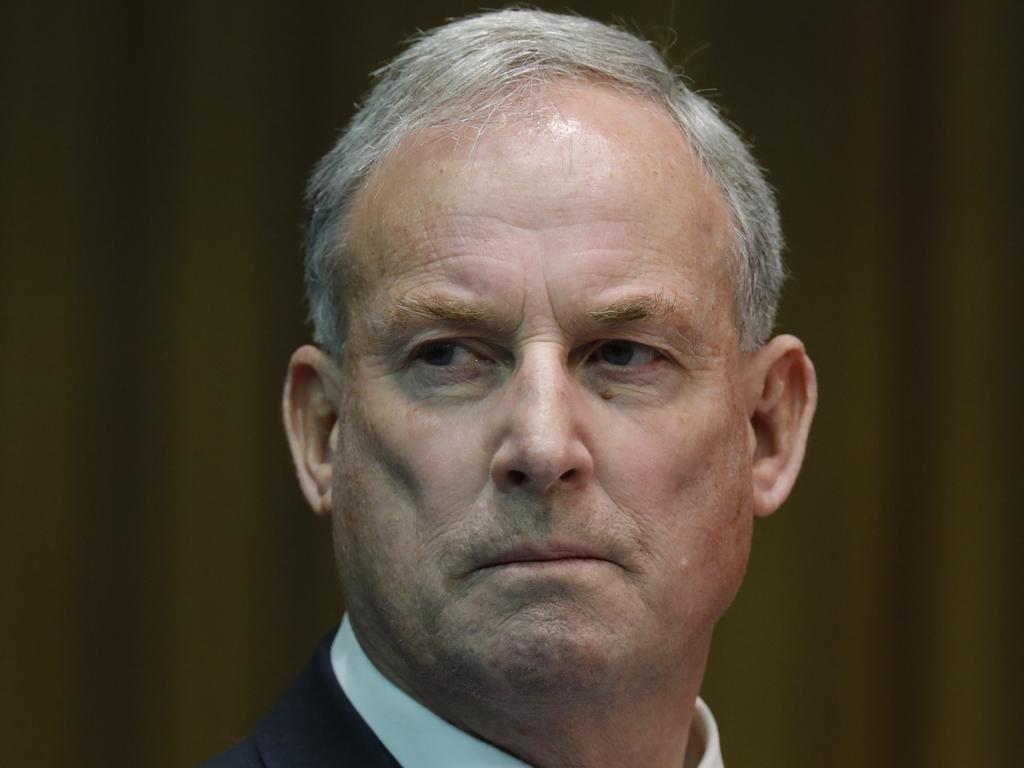Aged care system needs to be torn up and rebuilt, aged care royal commission is advised
The aged care sector should be reconstructed, with nursing homes required by law to deliver minimum adequate care standards.

The aged care sector should be reconstructed, with nursing homes required by law to deliver minimum adequate care standards and address system-wide neglect that is currently failing at least 20 per cent of residents.
The plan is contained in 124 recommendations to the aged care royal commission by counsel assisting Peter Rozen QC and Peter Gray QC. They also include mandatory minimum staff levels, price controls and a universal right for seniors to access care.
In the 500-page submission urging a fundamental redesign of the aged care system, the lawyers propose mandatory minimum hours of care per resident and a new legally enforceable duty of care on providers to deliver quality services.
Sexual abuse of nursing home residents was far more prevalent than previously understood from official figures, Mr Rozen said, with new KPMG survey data on resident-to-resident abuse revealing the extent of the problem.
“The estimated number of incidents of unlawful sexual contact in 2018–19 is 2520 or 50 per week,” he said. “This is a national shame.”
Revelations of abuse of residents at aged care facilities uncovered by the royal commission over more than two years of sittings and COVID-19 infection outbreaks at nursing homes that have been linked to 683 deaths have thrust failings in the system into the spotlight and intensified calls for reform.
Mr Rozen said the current system wasn’t fit for purpose.
“The weight of the evidence before the commission supports a finding that high quality aged care is not being delivered on a systemic level in our system and the level of substandard care is unacceptable by any measure,” he said.
“At least one in five people receiving residential aged care have received substandard care.”
The recommendations focus on supporting older Australians’ preference to stay in their own homes as they age. They call for the backlog in providing Home Care Packages to be cleared by the end of next year.
“We recognise that the vast majority of people that need care will want to receive it in their own home,” Mr Gray said. “It is a powerful message and one that we have heard.”
Commissioners Tony Pagone and Lynelle Briggs will consider the submission ahead of their final report to government due on February 26 next year.
Stakeholders and the public have been urged to offer their views on the counsel assisting’s submission by mid-November.
Aged Care Minister Richard Colbeck said he would wait until the commission’s final report next year before responding. Opposition aged care spokeswoman Julie Collins said the recommendations were further evidence of serious neglect in the system.
The submission calls for better pay for aged care staff and a minimum number of nurses. From July 1, 2022 at least one registered nurse is to be on site at each nursing home for the morning and afternoon shifts. Currently only Victoria and Queensland have mandatory nursing staff ratios in government-owned homes. And approved providers must ensure each resident has at least 3½ hours a day with a registered or enrolled nurse and personal care worker.
The report points out that older people find the aged care system “time-consuming, overwhelming, frightening and intimidating”.

“Ageist beliefs partly explain the poor communication and co-ordination within the system, particularly unkind and disrespectful communication,” the report said. “It deprives those people — grandmothers, grandfathers, mothers, fathers — of their humanity.”
One of the more contentious submissions was a recommendation the federal government hand over full responsibility to dole out $20bn a year in funding to a new independent body, the Aged Care Commission. It prompted a public stoush between the two commissioners.
“The independent commission that you describe in your submissions is quite an extraordinary proposal and, indeed, some might even call it courageous,” Ms Briggs told counsel assisting. “I would expect that all governments would want clear oversight of over $20bn in outlays. I am yet to hear you present arguments, counsel, as to how the commission model will improve the quality and safety of care for older Australians, or how any such benefits would outweigh the very substantial costs and disruption involved in such a radical transformation.”
Ms Briggs noted the difficult journey of the NDIS.
She said the government had taken steps to improve the aged care system’s internal processes, and questioned whether it needed to be removed from administering the sector.
“I have … detected over the last year … a growing determination among officials and in the government to fix the problems of the aged care system and to pursue a genuine reform agenda,” she said.
Mr Pagone said Ms Briggs’ views should not be taken as the commission’s final position.
“I suspect that my own view is much closer aligned to that which (counsel assisting) put forward and don‘t think that the description of them as courageous is quite the right description,” Mr Pagone said.
The submission comes less than a month after the commission reported on the aged care sector’s response to the COVID-19 crisis, finding there was no clear leadership or direction and calling for an immediate increase in staffing. Its six recommendations were immediately accepted by the Morrison government.







To join the conversation, please log in. Don't have an account? Register
Join the conversation, you are commenting as Logout